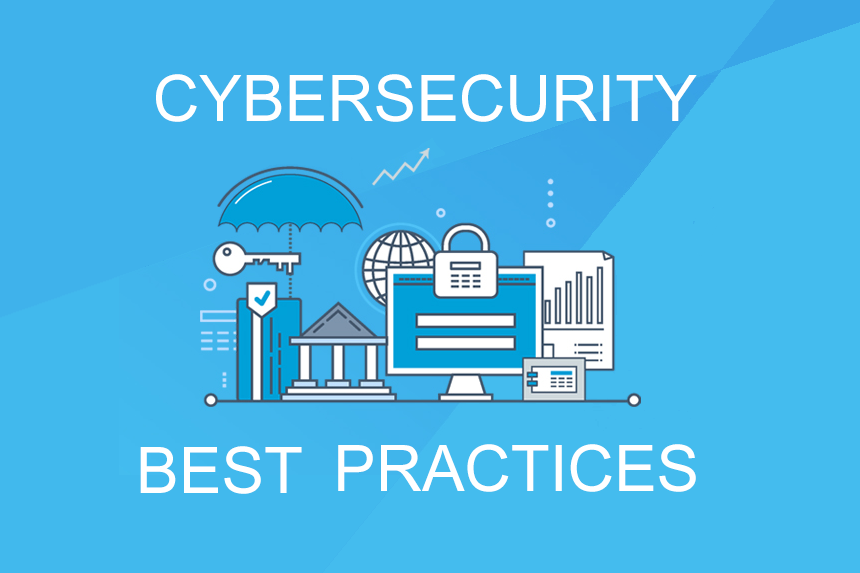
Loneliness has quietly spread across America, like a disease we can't see It's becoming a huge problem at work. The Surgeon General, Dr Vivek Murthy, warns us. He compares the harm from loneliness to smoking 15 cigarettes daily. He shares a shocking fact: about half of Americans feel very alone. This impacts their lives at home and at work.
There's a proven link between a worker's happiness and their performance. A study from the University of Warwick showed that happiness boosts productivity by 12%. Also, a big number of workers have quit jobs for mental health reasons, especially among Millennials and Gen Z. Companies can lower this turnover by valuing mental health in the workplace.
To keep productivity high, companies are setting up strong mental health support. This not only saves money but also creates a strong, focused team. To stay competitive and healthy, businesses must look after their employees' mental and emotional needs. Ignoring this can lead to ongoing unhappiness and poor performance, harming both the staff and the company.
The Silent Epidemic of Mental Health in the Workplace
Mental health in workplaces has shifted from being a taboo topic to a main focus. It's a key part of making sure the workplace is healthy. One in four adults will face mental illness during their life, making it vital to support mental health awareness. This issue not only impacts people's personal lives but also business success and how engaged employees are.
Many are hesitant to seek help due to stigma around mental health. Over 80% of these issues are related to the job itself. Yet, many bosses feel unprepared or think they shouldn't handle these problems. This can lower work output and lead to legal issues if health and safety rules are not followed.
How employers can improve mental health in the workplace:
- Employee Assistance Programs (EAPs) offer confidential help and advice for dealing with mental health.
- Allowing flexible work options can lessen job stress, making it easier for workers to take care of their mental health.
- Creating an open culture lets employees talk about mental health without fear, promoting support within the team.
- It's crucial to train managers on mental health so they can help their teams effectively.
Regular check-ups and data analysis are key in keeping mental health programs up to date. They help make decisions on how to better support employees. This method not only tackles the current mental health challenges but also builds a lasting system for workplace well-being. This improves productivity and boosts staff morale.
Putting these strategies to work helps with current mental health issues and lays the groundwork for ongoing well-being at work. By making mental health a priority, companies are fighting against this silent epidemic. They're creating spaces where workers can do well both in their jobs and in their personal lives.
Fostering a Culture of Physical and Mental Wellness

Combining mental health economics with climbing obesity rates reveals a huge financial hit to businesses. In 2023, this cost is expected to reach $425.5 billion. The link between worsening mental health and growing obesity rates highlights the need for strong workplace wellness programs. These programs are vital for both personal well-being and a company's financial health.
The Economic Impact of Mental Well-Being and Obesity
Research shows a 55% higher chance of depression in those who are obese. This underlines the important connection between physical and mental health in the economy. An urgent call is made for wellness programs that tackle both mental and physical health together.
Strategies for Building a Health-Conscious Work Environment
To create a health-supporting work setting, companies are embracing complete health programs. These efforts boost worker productivity and strengthen the company as a whole.
Example programs for the creation of a health-conscious work environment:
- Leadership by example from CEOs and senior management advocating for regular physical activity and showing commitment to mental health support.
- Embedding core values that prioritize well-being through transparent communication and supported access to mental health resources.
- Implementing flexible work arrangements to help employees manage stress and maintain a healthier work-life balance.
- Providing comprehensive health programs that include mental health days, fitness subsidies, and on-site wellness activities.
These methods create a workforce that is both mentally and physically fit. This strong foundation contributes to long-term success for the organization.
Implementing Mental Health Initiatives: A Strategy for Success

To boost workplace productivity and employee wellness, thoughtful mental health support is key. Employee Assistance Programs (EAP) are crucial. They help manage depression and anxiety, greatly improving workforce efficiency.
Workplace mental health initiatives are vital in today's stressful work scenes. They address mental health issues in workers, enhancing workplace productivity. For example, severe depression can lower thinking abilities by up to 35%. It slows down how fast and well someone can make decisions or solve problems.
Mental health initiatives in use:
- Designing flexible EAPs allows employees to customize services to meet their specific health needs, promoting better engagement and utilization.
- Integrating these programs into the daily work environment helps normalize the conversation around mental health, reducing stigma and encouraging more employees to seek help.
- Regular assessment and adaptation of these programs ensure they meet the evolving needs of the workforce, keeping them relevant and effective.
Investing in mental health support strategies has clear economic benefits. Companies that focus on mental health see less absenteeism, lower healthcare costs, and better work performance. So, putting money into mental health at work is smart. It can save a lot and create a happier, more focused team.
In conclusion, as workplaces change, our ways to support employee mental health must too. Committing to effective EAPs and other initiatives is crucial. It leads to a successful, healthy work environment.
Breaking the Stigma of Mental Health in Corporate Culture

Today's corporate world must address mental health stigma. Talking about mental health at work creates a strong, supportive space. It lets employees share and get help without fear. Managers play a key role in leading these conversations and changing the company culture. This change is crucial for employee well-being.
Creating an Open Dialogue
Talking openly about mental health at work can change the corporate scene. Companies can make mental health as normal to discuss as physical health. This change asks for ongoing effort and learning. It leads to a culture where everyone feels safe to share without worry of being judged.
Importance of Confident Managerial Support
Managers are key in fighting mental health stigma. They need training on mental health and how to talk about it. This helps them spot when someone is struggling and offer the right support. Supportive managers build trust. They make sure employees feel seen and understood.
In these efforts, it's vital to see how mental health affects organization success. A workplace that supports mental health achieves more, keeps employees engaged, and fosters a caring culture. Overcoming the mental health stigma is not just the right thing to do, it's also smart for business.
Flexible Work Policies as a Pillar of Mental Well-Being

In today's fast-changing job scene, flexible work arrangements are a must. They help people balance work and life, boosting mental health. Companies now see the value in adjusting to their teams' various needs. Such flexibility is key to keeping good staff and encouraging mental well-being and productivity.
Flexible work setups let workers balance their careers and personal lives better. Options like working from home, choosing when to work, and custom work plans are crucial. They're seen as important ways to ease stress. These choices cut down on commute stress and let people have a flexible day. This leads to less stress and more happiness at work.
Examples of flexible work policies:
- Remote work lets people create a comfy space of their own, easing stress.
- Flexible hours mean people can handle personal tasks without hurting their work.
- Choosing where and when to work helps people manage their time, aiding mental health.
Work-life balance is key for worker happiness and staying with a job. Companies that get this balance right draw in and keep the best talent. They also support everyone getting a fair chance to work. This includes parents, people caring for others, and those with health concerns.
Wrapping up, as workplaces change, we need to update how we support health at work. Backing flexible work arrangements and work-life balance, along with stress relief, is vital. By adopting these measures, businesses not only boost their team's health but also pave the way for lasting success.
Maximizing Potential Through Mental Health Training

The importance of mental health training today is crucial. With more people facing mental health challenges, it's vital for managers to take action. They need to focus on spotting and tackling these issues early. This kind of training helps not just the employees but the whole company too.
Training Managers to Identify and Address Mental Health Issues
Managers are key to their teams' mental health. By training them, companies give leaders the tools to notice if someone is struggling. They learn how to offer support, connect team members with help, and talk openly about mental health. Being ready like this helps reduce work-related stress and mental health problems.
Developing a Toolkit for Workforce Mental Health Advocacy
Creating a mental health toolkit for the workplace is important too. It offers guidelines on policies, how to talk about mental health, and supports for everyone. This toolkit makes a workplace where people feel cared for and important. Using these tools makes a positive place to work and keeps productivity up by meeting mental health needs.
Moving forward with mental health training, backing corporate responsibility, and pushing for advocacy in the workplace are critical. They help make mental health less of a taboo and lead to a better work environment. As mental health challenges grow, the need for this training and tools is more clear. It ensures companies are ready to deal with these issues.
Assessing the Impact of Mental Health Programs

Many healthcare workers are facing burnout and mental health challenges. It's important to evaluate mental health programs effectively. Almost half of all physicians report feeling burned out. Moreover, about 300 U.S. physicians take their own lives every year. This is more than double the rate among the general population. It shows we need to listen to employee feedback and use data to find mental health solutions. Doing this can help improve the situation.
Regularly Evaluating Employee Support Structures
Given the data, it's clear that the mental health of healthcare workers during the pandemic worsened. Emotional exhaustion climbed by 82%. To help, healthcare places should make sure they focus on mental health. By checking the results of mental health programs often, they can make better support plans. This way, they can keep up with the changes in healthcare and better support their employees.
Leveraging Data Analytics for Improved Mental Health Measures
Data analysis is key in making sure support methods work well. It has led to fewer workdays missed due to mental health issues. Additionally, more employees stayed in their jobs. This insight helps find the most effective strategies. It has led to better mental health for those who get the right support. Using technology to understand these aspects is crucial. It helps build a strong workforce that can take care of others and themselves.
Do you think employers have a responsibility to address loneliness and social isolation among their employees, or is this an issue that individuals should primarily manage on their own?








